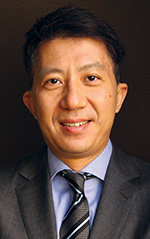Rethinking Public Diplomacy for a Post-Pandemic World
In a fast-changing world with tensions and needs exacerbated by the pandemic, the practice of public diplomacy demands a swift reconfiguration.
BY JIAN (JAY) WANG
The outbreak of the novel coronavirus will be remembered as one of the worst global crises in modern history. As the damage and devastation continue to unfold, the world we live in is getting more stressed by the day. The basic contours of the calamity are now familiar enough. Yet international cooperation to defuse and defeat the COVID-19 pandemic is elusive, at best. Every nation fends for itself in the battle, while our fates are decidedly intertwined. As the world is watching, the reputation and credibility of each nation, through its words and deeds, are also put to the test.
This disruptive reality forces a question about the future of global affairs: While maintaining a stable world demands an ever more nuanced multilateral approach, will a broad spectrum of the public succumb to the siren call of resurgent nationalism? These tensions are, of course, not new, but the current pandemic will exacerbate them. And, as a result, public diplomacy is becoming a more, not less, significant component of every nation’s international relations and influence, serving as it does as a critical, collective linkage between policy and people, domestic and international. Because the “soft power” that public diplomacy helps generate is now an indispensable currency in global affairs, effective PD assumes new urgency.
How will this crisis be a catalyst for reshaping a nation’s public diplomacy resolve and capability?
Transformative Trends
While the pandemic does not alter the fundamental dynamics already underway that are disrupting our thinking and practice concerning public diplomacy, it is poised to accelerate the change once the turbulence of the crisis simmers down. As the practice of public diplomacy is essentially a set of communication- centric activities, we see several overarching transformative, interwoven trends along every key aspect of the enterprise.
First and foremost, the broader geopolitical and geoeconomic context for communication and engagement on the global stage is fast changing. The rise of China and other major emerging economies are engendering tectonic power shifts in world affairs. At the same time, there is sharpening domestic discord, especially in the West, on the nature and extent of a nation’s global commitment and engagement. Meanwhile, global economic growth in the coming decade will be driven by regional markets like Asia; and the COVID-19 pandemic has not changed that trajectory. So uncertainties abound as the global political and economic order continues to evolve and the primacy of the United States continues to be contested.
Likewise, the audiences for public diplomacy are also changing. Much of the change is evidenced in the tides of demography, from population aging in developed economies to a “youth bulge” in developing countries. Overall, the audience is becoming more urban. And the population mix in many Western nations is undergoing ethnic remapping due to migration patterns. We now have more people than ever in human history joining the global middle class, and they turn to digital platforms for news and information and for social interaction. Many more are living transnational lives facilitated by wider access to transportation and communication across national borders.
Concurrently, we also face an impassioned and polarized public at home and abroad, as nations experience crises of identity in light of an increasingly culturally diverse daily existence. In this respect, what’s old is new again: The rising populist fervor in many parts of the world is the latest manifestation of the tensions between the two fundamental human forces of interest and identity in social decision and human action.
Admittedly, digital technology is transforming the tools and platforms for public diplomacy. Digitization and advanced analytics are changing the way people seek information and stay connected. Virtual reality and augmented reality tools are redefining how people experience their worlds. Artificial intelligence and automation are set to reshape the future workforce and alter the meaning of work and leisure. This also includes automated communication placements with better targeting. The acceleration of digital technology has dissolved the boundaries between domestic and abroad, making the interaction of national concerns and international engagement ever more dynamic and interdependent.
Another important aspect of the disruption is that the stakeholder communities on the global scene have broadened. Nonstate actors and diverse institutions, such as cities, multinational businesses and civil society organizations, are increasingly engaged in confronting local and global challenges. The stakeholder communities for public diplomacy have not only expanded; they are also greatly empowered by digital technology.
While we may be humbled by our own fragilities in the face of a pandemic, this crisis has also revealed the weakness of our imagination to transcend the politics of negativity and to expand social cooperation.
The COVID-19 pandemic will likely further expose the fault lines between national and cultural communities, heightening the existing tensions in globalization manifested in the mobility of goods, information and people. Decades ago, in his Moral Man and Immoral Society (1932), theologian and social critic Reinhold Niebuhr made this observation: “A technological civilization has created an international community so interdependent as to require, even if not powerful or astute enough to achieve, ultimate social harmony. While there are halting efforts to create an international mind and conscience, capable of coping with this social situation, modern man has progressed only a little beyond his fathers in extending his ethical attitudes beyond the group to which he is organic and which possesses symbols vivid enough to excite his social sympathy.”
While we may be humbled by our own fragilities in the face of a pandemic, this crisis has also revealed the weakness of our imagination to transcend the politics of negativity and to expand social cooperation. These conditions and dynamics point to the basic reality of growing diplomatic fluidity and a fast-changing communication landscape for public diplomacy. The disruptions are sweeping. So how should we rethink and reconfigure the practice of PD? Here are some suggestions.
Rethinking PD: Some Suggestions
Take a network view. Nowadays, individuals and organizations can easily develop networks of interactions through digital technology, potentially reaching a large and even a global audience. Focusing on relationships rather than merely messages, a social network approach allows us to see a nation’s position in its operational environment, and to identify and mobilize key influencers both online and offline to achieve scaled and sustained impact.
Granted, relationship-building has always been a cornerstone of public diplomacy. The difference is that when relationships are viewed as isolated entities, we emphasize one pair of actors and their relationships at a time. In contrast, a “network perspective” represents a more holistic approach by considering multiple pairs of relationships simultaneously and by attending to how relationships influence the change and evolution of other relationships.
To design effective public diplomacy programs, it becomes ever more important to view the sprawling complexity of the information ecosystem as a global web of communication networks. Take the example of international exchange. Formal and informal networks established through exchanges have strategic value. But building, maintaining and sustaining such networks and unleashing their value all require a solid understanding of the nature and performance of these networks. This is both a strategic and an empirical question. A comprehensive mapping and reevaluation of these relationships using social network analysis is the first step.
Integrate the digital and the physical. As one’s digital life interacts ever more with the physical realm, we must not only build a distinct digital voice and digital identity into PD programs, but also maintain the human touch through direct person-to-person contact. The COVID-19 pandemic makes it apparent to us that, despite the ease of communication through digital tools, something fundamental is missing when we are removed from our physical environment.
In our tech-infused world, there seems to be a craving for a sense of place and a sense of conviviality that an in-person event like the World Expo provides, for instance. After all, physical presence still represents a more elemental form of communication and a transcultural human experience. As a major public diplomacy program, the World Expo begins as a place-based attraction; but, at the same time, advancements in digital technology are upending how people experience and enjoy the event. The fairground is no longer a controlled physical space, but a fluid, expansive one where visitor experiences are transmedia and can be instantaneously shared beyond Expo grounds. So, we need to seek a balance between the digital and the physical to ensure effective PD engagement and prepare for the integration of digital and in-person strategies when social distancing requirements are loosened.
Expand city diplomacy. City diplomacy is a powerful tool for international engagement at the local level. It provides a much-needed anchoring mechanism to generate goodwill and reciprocity between cities and peoples across national boundaries. Its value has risen steeply at a time when national-level actors face or create political and bureaucratic gridlocks. City leaders around the world are embracing international relations as it relates to a host of urban priorities, from economic development and cultural engagement to addressing mounting, shared challenges such as climate change, migration and emergency preparedness. A prime example is C40 cities, a network of megacities committed to addressing climate change. During the COVID-19 pandemic, cities are on the front lines of crisis response. Their international networks provide a platform for sharing knowledge and practices, obtaining critical resources, forging collaborations and partnerships, and demonstrating solidarity and a sense of community.
To thrive in a globalized society, our citizens and local communities must understand the necessity of a city’s—and, indeed, a nation’s—international engagement to advance their interests and to enhance national security. In an increasingly networked world system, trust between nations may best be built from the ground up at the local level. U.S. cities play a consequential role in building bridges between America and other nations, and in sharing with the world facets of American life and core values.
Invest in PD reskilling and upskilling. Capacity-building is essential to advance public diplomacy, especially in key functional areas such as audience analysis, visual and social storytelling, integrative community management, and analytics and impact. Contemporary PD demands communication approaches on a range of platforms that are compelling in content, style and placement. In this age of information abundance and mobility, communication attributes, such as transparency, authenticity, exclusivity and convenience, have greater prominence. Cultivated capability in understanding PD problems in computing terms and through data science not only enables strategy planning but also facilitates implementation with agility and versatility.
Indeed, the COVID-19 crisis has accentuated the need for practitioners to acquire broad-based digital skills and to learn new models of engagement. Based on the evolving and continuous assessment of current and future practices, the skills and capabilities required for effective global engagement need to be constantly reexamined and refreshed.
Public diplomacy provides collective linkages between national self-interest and the international common good. Reflecting a nation’s enlightened self-interest, it is a vehicle for building coalitions and demonstrating leadership to advance policies. It moderates extreme tendencies and fosters empathy and restraint in dealing with other nations and societies. Today profound, influential societal shifts are reshaping public diplomacy. They compel us to rethink the fundamental assumptions underlying current practices, creating new openings and possibilities.
Read More...
- “Public Diplomacy in the Age of Pandemics” by Jay Wang, March 18, 2020
- “Public diplomacy in the time of Corona” by Liz Galvez, April 6, 2020
- “The COVID Crisis Gives Public Diplomacy Teams the Chance to Experiment” by Neil Simon, May 19, 2020




